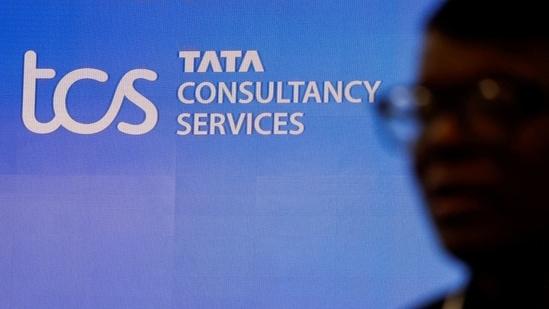TCS Layoffs: Workforce Changes Amid AI Disruption
Tata Consultancy Services (TCS), one of the world’s largest IT services providers, is in the throes of a challenging transition. The company plans to cut about 2% of its global workforce in the coming year—translating to more than 12,000 jobs. But is artificial intelligence really to blame?
The sharp reduction has sparked debates across boardrooms, tech campuses, and social media feeds. Everyone is asking the same question: Is automation replacing jobs at a pace no one is ready for?
CEO Speaks Out: Not an AI-Driven Decision?
In an interview with MoneyControl, TCS CEO K Krithivasan made it clear that the decision, although difficult, wasn’t directly driven by AI gains.
“This is not because of AI giving some 20 per cent productivity gains,” Krithivasan said. “This is driven by where there is a skill mismatch, or, where we think that we have not been able to deploy someone.”
Krithivasan emphasized the layoffs would unfold gradually throughout fiscal year 2026 and would not target any specific country, office, or job type. “We will do it in a very, very compassionate way,” he added.
But there’s a bit of a wrinkle here…
Conflicting Signals: The AI Connection
So, the CEO says AI isn’t directly responsible. But the company’s official statement paints a different picture—at least partially. TCS noted that it is “deploying AI at scale” across its operations and reshaping its workforce model as part of a broad strategy to become a “Future-Ready organisation.” Here’s a portion of the statement:
“TCS is on a journey to become a Future-Ready organisation. This includes strategic initiatives on multiple fronts, including investing in new-tech areas, entering new markets, deploying AI at scale for our clients and ourselves, deepening our partnerships, creating next-gen infrastructure, and realigning our workforce model.”
This “realigning” seems to overlap directly with the layoffs. Is it about performance or productivity? Or is AI quietly nudging out roles that are no longer deemed necessary?
Timeline of Events
- November 2022: ChatGPT is launched, capturing global attention.
- Early 2023: Generative AI becomes a central topic in tech boardrooms globally.
- May 2024: TCS announces the layoff of 12,261 employees, citing business realignment.
- June 2024: CEO K Krithivasan addresses media, denying AI as the direct cause.
According to a report by Hindustan Times, these layoffs come about 30 months after ChatGPT changed the game. Whether AI is the main villain or not, it’s hard to deny the correlation.
Pressure from Clients, Competition, and Cost
The market is shifting fast. As Phil Fersht of HFS Research put it, “The impact of AI is eating into the people-heavy services model and forcing the large service providers such as TCS to rebalance their workforces.”
“Clients are demanding 20-30% price reductions on deals,” Fersht said. “This trend will last for about a year as the leading providers focus on training junior talent to work with AI solutions.”
It’s not just TCS. HCL Technologies, India’s third-largest IT supplier, recently hinted at similar workforce shifts due to automation pressure. No one seems fully immune.
What Roles Are Affected Most?
The layoffs are expected to primarily impact mid- and senior-level staff. These roles typically come with higher costs and longer career tenure. If new automation tools can replicate part of their responsibilities, it becomes harder to justify payroll costs—at least from a strict accounting lens.
There’s also the notion of a “skill mismatch.” Those unable or slow to pick up AI skills might find themselves sidelined. While the company isn’t singling out specific geographies, the impact may vary depending on project and client portfolios.
Community Response
The reactions have been mixed—some empathetic, others skeptical. IT professionals across social forums like Reddit and LinkedIn are voicing concerns over job security and future readiness.
- “It feels like a seasoned workforce is being replaced with cheaper hires trained in AI tools,” one anonymous TCS veteran shared on LinkedIn.
- “They say it’s not all about AI, but everything points back to AI—delivering faster, cheaper, and doing more with less,” said a Bengaluru-based engineer currently employed by a competing firm.
While some accept this reshuffling as part of evolving business needs, others worry it may lead to a loss of institutional knowledge and project depth.
What’s Next?
Internally, TCS is expected to roll out multiple training programs focused on AI and low-code tools for its workforce. The idea is to retrain junior talent and integrate them into this changing model. The company is also doubling down on client engagements that require AI transformation work—basically every other new big-ticket project.
But the success of such a shift depends on execution. And that, well, has its own learning curve.
Opportunities for Fresh Talent?
Some see a silver lining. Early-career technologists may find more openings in the new structure, especially if they come in equipped with AI and data skills. Still, the message from TCS is clear: be adaptable or risk being left behind.
The core challenge for employees and industry observers alike boils down to this: Are we seeing a strategic pivot or a silent ushering in of a leaner tech workplace—powered by fewer people and more algorithms?
Final Thoughts
There’s no one answer here. What we’re seeing is a complex blend of proactive strategy, market pressure, and yes—technological disruption. As firms like TCS try to stay competitive globally, changes like these may become more routine than exceptional. What’s less certain is how human capital, arguably the foundation of the IT sector, will adapt or absorb the shock.
For now, you may want to keep an eye on where this wave goes next. Because it likely won’t stop at just 12,000 roles.

